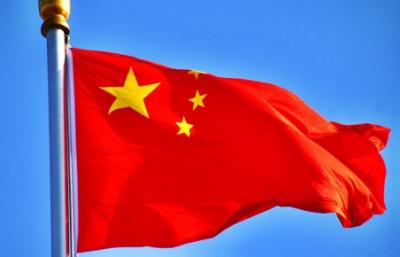China is facing hurdles in vaccine diplomacy as numerous countries have rejected its coronavirus vaccines and are looking at more reliable sources. In the latest incident, Peru has suspended trials for China's Sinopharm Covid-19 vaccine after a "serious adverse event" was reported on Saturday.
A Reuters report said that the Peruvian Health Ministry is conducting investigations. The ministry issued a statement: "The decision to temporarily suspend clinical trials is a safety measure contemplated in the regulations for clinical trials and protocols established to protect the health of research subjects." Sinopharm is conducting trials on 12,000 volunteers for the first stage of trials.
Chinese vaccine manufacturers have fanned out to over a dozen countries for vaccine trials. Smaller countries have welcomed trials in the hope of getting the vaccines at affordable costs and in time. However, despite the Chinese enthusiasm to be the first in sharing and selling its covid vaccines, things have not turned out the way China wanted.
Many countries are turning to the US, the UK and India for their vaccine requirement. Brazil was one of the initial countries to reject the Chinese coronavirus vaccine over its proposed effectiveness. Brazilian President Jair Bolsonaro said: "The Brazilian people will not be anyone’s guinea pig.” Though his detractors say that Bolsonaro's decision is more political, for China it means a loss of billions of dollars in sales. Brazil is the second-most affected country after the US with over 1,80,000 covid deaths.
The Brazilian President himself had fallen prey to the coronavirus. Now the country is looking at multiple sources of vaccine to be able to vaccinate its entire population. It plans to begin its vaccination campaign from health workers, elderly people and the indigenous communities. Bangladesh, which is part of China's ambitious Belt and Road Initiative (BRI) decided not to go with the Chinese company Sinovac over an alleged breach of promise.
Bangladesh Health Minister Zahid Maleque said in October that Sinovac should run the vaccine trial with its own money because this is what the company had promised in return for approval for the trials. Maleque told the media: "They never asked for co-funding when they sought approval for the trial. This is not a contract we have with the Chinese government. This is a private company and we cannot have a co-funding with a private company." Bangladesh is hopeful of getting the vaccines from India as well as the World Health Organization.
Ironically, China has been facing problems in the land of "iron-brother" Pakistan as well. Chinese pharmaceutical company Cansino's phase three trials in Pakistan have run into rough weather due to the famed Pakistani aversion for vaccines. It is because of this attitude that Pakistan and Afghanistan are the last two countries in the world which still harbour the polio virus.
Nikkei Asia quoted an official from a government-run research body, the National Institute of Health (NIH), as saying: "Hospitals … have been facing difficulties in recruiting volunteers for the trials because of the flood of misinformation, mainly on social media.” The government is hopeful that it will be able to encourage people to register for the vaccines through a mass communication and advertising campaign.
However, the biggest setback for China comes not from individual countries but from the Association of Southeast Asian Nations (ASEAN) where Thailand, Malaysia and the Philippines decided to procure their quota of vaccines from American and British companies.
ASEAN countries are suspicious of China as they have been at the receiving end of communist big brother's aggressive maneuvers in the South China Sea (SCS) region and also fear the strings that come attached with Chinese contracts. It has been frantic global race in 2020 to not only escape and evade the mysterious virus, but also find a reliable vaccine. China is believed to have a headstart in understanding the debilitating virus, which originated in Wuhan.
However, many countries including Russia, the US, the US, Israel and India have been working furiously to find an antidote to the infection. As the vaccine race draws to a close, China seems to be losing out on vaccine diplomacy as a bevy of countries have stepped in with vaccines that do not affront the dignity or impinge the sovereignty of smaller nations.




















